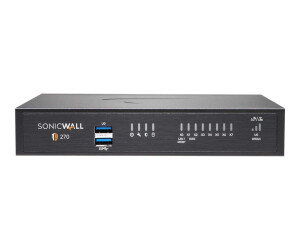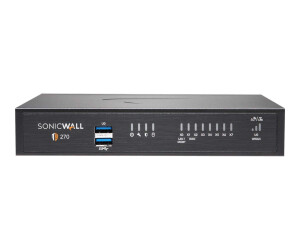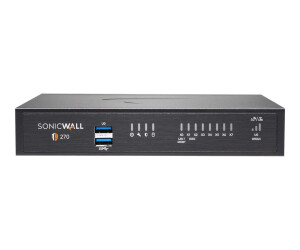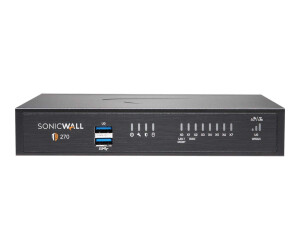Firewall
Firewall
Device Type Firewall: A Comprehensive Explanation
A firewall is an essential security device used in networks to control and monitor unauthorized access to or from a network. It forms a crucial defense line against cyber threats and unwanted traffic by analyzing, filtering, and regulating the traffic. This detailed explanation sheds light on various aspects of a firewall, including its definition, functionality, different types, benefits, and applications.
Definition and Operation of Firewalls:
A firewall is a security mechanism aimed at protecting a network from unwanted, harmful, or unauthorized data traffic. It acts as a barrier between an internal network (e.g., a corporate network) and the external, insecure network, such as the Internet. The primary function of a firewall is to monitor, filter, and control traffic based on predefined security policies.
Firewalls operate at various layers of the OSI model, including the network, transport, and application layers. They use rules and configurations to determine which types of traffic should be allowed or blocked. This is done based on source and destination IP addresses, port numbers, protocols, and other factors.
Different Types of Firewalls: An In-Depth Explanation
In the ever-evolving digital landscape, firewalls have become an indispensable defense line to protect networks and data from threats in the cyber world. There are different types of firewalls that monitor, filter, and control traffic in various ways. Each type has specific characteristics and functionalities that allow them to meet specific security requirements. Here are some of the key types of firewalls in detail:
1. Packet Filtering Firewall: The Packet Filtering Firewall is one of the fundamental forms of firewalls. It analyzes each data packet flowing through the network based on predefined rules. These rules are based on information such as source and destination IP addresses, port numbers, and protocols. The firewall compares the information in the packets with the rules and then decides whether to allow or block the packet. Packet Filtering Firewalls are effective and efficient as they operate at the network level and can quickly filter traffic. However, they also have limitations as they cannot perform a deeper analysis of traffic.
2. Stateful Inspection Firewall: The Stateful Inspection Firewall goes beyond simple packet filtering. It monitors the state of network connections and tracks the progress of traffic. This type of firewall has knowledge about the current states of network connections, including their start and end points. As a result, it can analyze traffic and ensure that it belongs to an existing authorized connection. Stateful Inspection Firewalls provide an additional layer of security by ensuring that traffic matches expected patterns.
3. Proxy Firewall: The Proxy Firewall acts as an intermediary between internal and external networks. Instead of communicating directly with the external server, the internal client sends its request to the proxy, which forwards the request to the server on behalf of the client. The server's response is also relayed back to the client through the proxy. This protects the identity of the internal network as the external server does not know the actual IP address of the client. Proxy Firewalls also provide features like caching and content filtering to enhance network security.
4. Next-Generation Firewall (NGFW): Next-Generation Firewalls, or NGFWs, take a step further than conventional firewalls. They offer advanced features such as Intrusion Detection/Prevention (IDS/IPS), application control, and Deep Packet Inspection (DPI). NGFWs are capable of analyzing traffic at the application level and detecting complex threats. They also provide more control over traffic by allowing restrictions on specific applications or websites.
5. Application Layer Firewall: The Application Layer Firewall operates at the highest layer of the OSI model, the application layer. It analyzes the content of data packets to block unwanted or malicious content. This type of firewall can work at both the protocol level and content level. For example, it can block specific file types or recognize and control the use of certain applications. Application Layer Firewalls are particularly effective in detecting threats that target the content of data packets, such as viruses or malicious code.
Benefits of Firewalls: An In-Depth Explanation
In today's interconnected world where businesses and organizations rely on complex networks, firewalls have become an essential component of network security. They offer a variety of benefits that contribute to ensuring the integrity, confidentiality, and availability of data. Here are the key benefits of firewalls in detail:
1. Network Security: The primary purpose of a firewall is to protect networks from a wide range of threats, including malware, viruses, worms, and other malicious software. By monitoring and filtering traffic, a firewall can block suspicious or malicious traffic before it reaches the network. This helps prevent the spread of threats and enhances network security.
2. Data Privacy: Firewalls play a crucial role in safeguarding sensitive data from unauthorized access. They prevent unauthorized users from accessing confidential information by monitoring traffic and ensuring that only authorized connections are allowed. This is particularly important for protecting personal data, intellectual property, and other confidential information.
3. Traffic Control: By filtering and controlling traffic, firewalls enable network administrators to have precise control over the types of data that are allowed into the network. This is particularly useful for reviewing traffic for business relevance, security risks, and compliance requirements. By monitoring traffic, firewalls can detect suspicious activities and take action.
4. Application Security: Some firewalls offer the feature of application control, allowing monitoring and limiting traffic from specific applications. This is especially important as certain applications can have security vulnerabilities or be susceptible to privacy breaches. Application control enables network administrators to restrict access to these applications and enhance network security.
5. Compliance: Firewalls play a crucial role in complying with data privacy and security regulations. Many industries and regions have strict regulations for data protection and ensuring privacy. By implementing a firewall, companies can ensure they adhere to required security standards and meet legal requirements.
Applications of Firewalls: A Comprehensive Explanation
Firewalls are versatile security mechanisms used in various environments and scenarios to protect networks, data, and resources from threats. Their ability to monitor, filter, and control traffic makes them an essential tool in today's digital world. Here are the different applications of firewalls in detail:
1. Enterprise Networks: In corporate environments, firewalls are crucial to safeguard the internal network from external threats. They serve as the first line of defense against malware, hacking attempts, and other attacks. By implementing firewalls, companies can ensure that the traffic entering and leaving the network is monitored and filtered according to the company's security policies. This is particularly important as corporate networks often contain sensitive data, business applications, and customer information.
2. Home Networks: Firewalls are also of great importance in home networks. They provide security for personal devices such as laptops, smartphones, and smart TVs connected to the internet. Home firewalls help fend off unwanted access and potential threats like viruses, malware, and phishing attacks. This ensures the protection of personal data and user privacy.
3. Cloud Computing: In the increasingly popular cloud computing environment, firewalls are a critical protective mechanism. Cloud infrastructures host a variety of virtual resources, including servers, databases, and applications. Firewalls protect these resources from unauthorized access, data theft, and attacks. They ensure that the traffic between virtual resources and the internet is secure, which is essential for businesses and organizations utilizing cloud services.
4. Mobile Networks: In the era of mobile communication, firewalls also play a significant role in mobile networks. They protect mobile operators from attacks such as Denial-of-Service (DoS) attacks that could compromise network availability. Firewalls in mobile networks also enable the enforcement of security policies to ensure safe and reliable traffic transmission. Additionally, they safeguard the integrity of SMS services and voice communication.
5. Public Wi-Fi Networks: In public Wi-Fi networks available in places like airports, cafes, and hotels, firewalls are of paramount importance to protect users from potential hazards. These networks are vulnerable to various types of attacks due to being used by numerous different users. Firewalls create a protective layer that prevents malicious activities and unwanted traffic from reaching a user's device. This helps ensure the security and privacy of users utilizing public Wi-Fi.
Summary of Firewall as a Network Security Element: A Detailed Explanation
A firewall is undoubtedly an indispensable element in modern network security, fulfilling a range of functions to ensure the integrity, confidentiality, and availability of networks and resources. In essence, a firewall can be considered a guardian that actively deflects threats and enables controlled data flow within the network. Here are the key aspects that summarize the significance and functions of a firewall:
1. Network Security and Threat Protection: The primary role of a firewall is to protect networks from a variety of threats, including viruses, malware, spyware, ransomware, hacking attempts, Denial-of-Service (DoS) attacks, and many other malicious activities. By establishing security rules that define permitted traffic, the firewall detects and blocks suspicious activities before they can cause harm.
2. Monitoring and Control of Traffic: A firewall monitors the traffic flowing in and out of a network to ensure it adheres to predefined security policies. By setting rules based on IP addresses, port numbers, protocols, and applications, the firewall decides which traffic should be allowed or blocked. This control allows for more precise management of network traffic.
3. Types of Firewalls and Customized Security Strategies: There are various types of firewalls, including Packet Filtering Firewalls, Stateful Inspection Firewalls, Proxy Firewalls, Next-Generation Firewalls, and Application Layer Firewalls. Depending on an organization's specific requirements, an appropriate security strategy can be chosen and implemented. This enables fine-tuned firewall configuration to meet specific security needs.
4. Protection of Sensitive Data: A firewall contributes to safeguarding sensitive data from unauthorized access and data theft. By filtering traffic and blocking unauthorized access, the firewall prevents confidential information from falling into the wrong hands. This is especially critical for companies that need to protect customer data, intellectual property, and business-critical information.
5. Enforcement of Security Policies and Compliance: A firewall allows businesses and organizations to effectively enforce security policies and compliance regulations. It can be configured to allow only specific types of traffic, ensuring compliance with industry-specific regulations and data privacy laws. This is crucial to minimize legal risks and maintain the trust of customers and partners.
6. Enhancement of Overall Network Security: By blocking unwanted traffic and detecting suspicious activities, a firewall contributes to improving overall network security. It reduces the risk of successful attacks and helps identify and remediate vulnerabilities within the network.
In summary, a firewall is not just a security mechanism but a complex solution that serves to protect networks, ensure data integrity, and control network communication. Its significance in an increasingly connected world cannot be overlooked, as it forms the foundation of a robust and secure network infrastructure.










